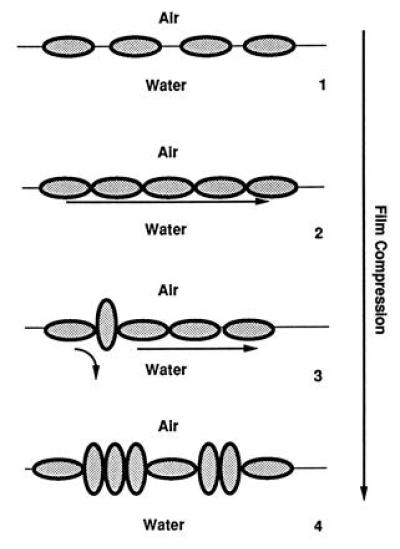Figure 4.

Molecular structural events of the protein film during its compression and their consequences on the proton lateral conduction. BSA molecules are drawn as grey ellipsoids. (1) At a low packing density, the molecules lie flat at the air/water interface. There is no molecular assembly, i.e., no contact between molecules. No proton conduction can take place. (2) When the film is compressed, a critical phenomenon takes place, giving the formation of a molecular assembly. A continuous layer of interfacial water molecules is created which facilitates the lateral proton transfer over a long distance (long arrow). (3) With a further film compression, some protein molecules are tilted to an upright position giving local breaks in the molecular assembly. These defects prevent the lateral conduction locally (curved arrow). (4) When the film is highly packed, more and more protein molecules are brought to the upright orientation. The associated increase in defects prevents the long-range proton conduction.
